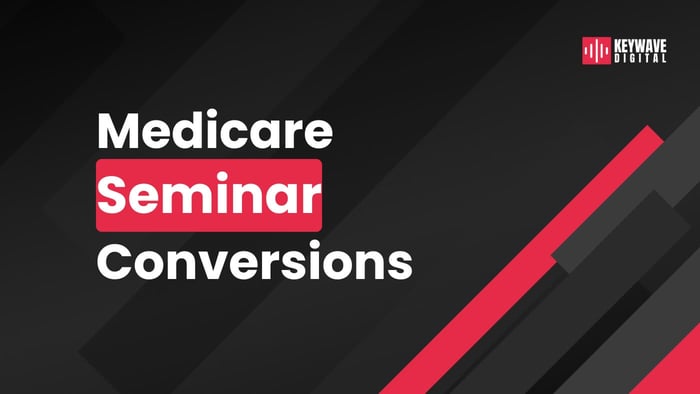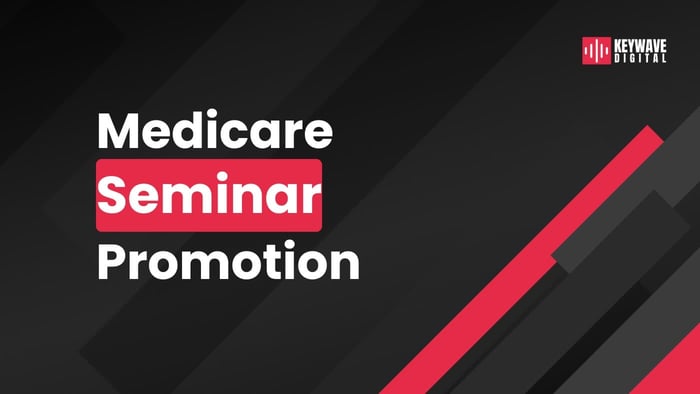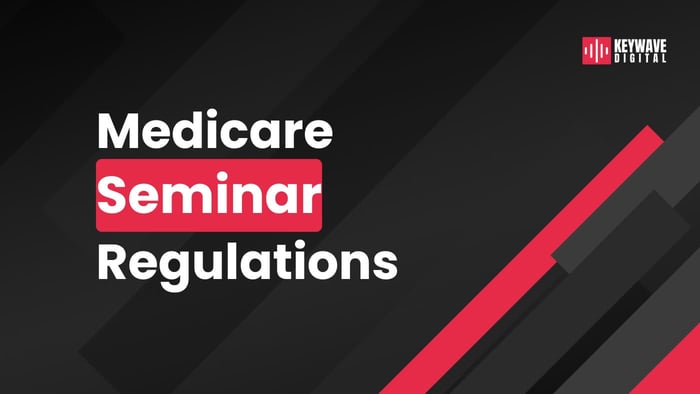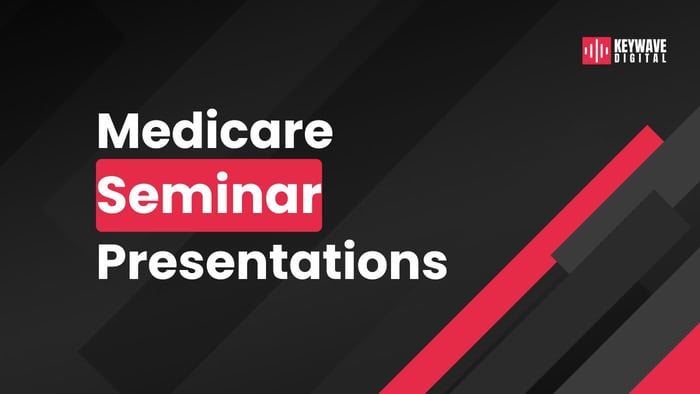Converting seminar attendees into clients is no walk in the park.
This process can be a challenging hurdle for many insurance agents and financial advisors.
The key to successful conversion lies not just in hosting seminars but also in carefully crafting them to foster trust and credibility. Failing to build enough trust during the seminar, your attendees won't be inclined to book follow-up appointments.
Remember that seminar marketing aims to convert seminar attendees into appointments and loyal clients.
From post-seminar best practices to follow-up actions, let's explore how to convert your attendees into valuable, long-term clients.
Table Of Contents:
- Importance of Follow-Up After the Seminar
- Strategies for Converting Attendees into Clients
- Tips and Best Practices for Client Conversion
- Master the Art of Converting Seminar Attendees into Clients
Importance of Follow-Up After the Seminar

As an insurance agent or financial planner, your role goes beyond organizing and hosting the seminar.
The true success of your educational seminars doesn't end with the last slide of your presentation.
The follow-up phase is just as crucial as the event itself. Going the extra mile through effective follow-up sets you apart from everyone in such a competitive industry.
Effective follow-up will maximize the impact of your seminar and establish a lasting connection with the attendees. In fact, this lays the groundwork for converting interested prospects into loyal clients.
Here are the reasons why you shouldn’t skip the follow-up activities after your event:
- Address post-seminar questions and concerns.
- Build trust and personal connections.
- Nurture long-term customer loyalty.
- Gain more referrals and consultations.
- Further establish your reputation as an insurance agent.
- Offer personalized guidance according to specific situations.
- Provide supplementary materials and resources.
Strategies for Converting Attendees into Clients
Educational seminars are a great opportunity to get yourself in front of a crowd and generate leads.
Now that your seminar is complete, the next question is: “What’s next?”
The real challenge of seminar marketing lies in converting attendees into long-term clients. You might be wondering how to follow up with your seminar attendees and keep them engaged.
Client conversion is a process that involves strategies focusing on trust-building, engagement, and effective communication. Follow these tips and tricks to transition seminar attendees into loyal clients.
Hand Out Business Cards After the Seminar

Once the seminar is over, some folks might want to reach out to you.
If you want them to become your clients, make communication easy and simple. Business cards remain a convenient way to make a quick impression on potential clients.
You may pass around business cards with all essential details like your name and title, phone number, and email address. Business cards should not mention plan-specific benefits or specific financial products.
It would be helpful to have an assistant or staff to distribute these business cards.
However, make sure attendees know that receiving a card is optional. Don’t be too aggressive about the whole process. Let your seminar attendees know it's up to them whether they want to accept a business card or not.
Distribute Permission to Contact (PTC)
When conducting marketing and sales activities, agents may contact seminar attendees, but they must obtain explicit permission to do so.
Establishing permission to contact (PTC) is a best practice that sets you apart from the unethical agents. Paper or electronic PTC forms can be filled out after your educational seminar event. Your attendees will decide how they would like to be contacted either through phone call, email, or direct mail.
Most insurance agents print out these PTC cards and place them in a specific spot at the seminar venue. Typically, they'll mention what these cards are and where to find them at the start, but they don't push it or keep bringing it up repeatedly.
This helps ensure that no attendee feels pressured or hurried into making healthcare coverage decisions. By respecting this boundary, you demonstrate professionalism while safeguarding individual privacy rights.
Send a “Thank You” Card After the Seminar

A follow-up is not always about gaining a new client. It’s also about expressing gratitude for their attendance.
Regarding post-seminar activities, a simple “thank you note” goes a long way. Sending personalized thank-you emails is a great way to keep the buzz going and build momentum for your next event.
In your note, you may encourage attendees to meet with you to schedule a follow-up appointment.
Create Personalized Follow-ups
Don’t let the connection fade away after your seminar. Reach out to all attendees, including RSVPs who did not attend.
You may send personalized follow-up emails tailored to their specific needs and concerns. This lets the seminar attendees know their presence is valued. Generic and impersonal messages may not resonate as effectively as personalized ones.
Generally, it’s recommended to follow up within a week after the seminar and then periodically thereafter. This ensures you stay on their radar without overwhelming them.
Use Marketing Tools for Automated Follow-ups
Sending follow-ups manually can be time-consuming, especially when you already have much on your plate.
That's why it helps to leverage tools that can automate your follow-ups. Here's how you can do it.
Many marketing automation tools can automate communications all the way through your funnel. The software can send automated emails or text messages to your leads. With automation, you can thank them for attending, requesting an appointment, and building relationships with your attendees.
At Keywave Digital, we have custom-tailored a system called EVENTFULL, which sets up automation post-event to maximize the number of appointments.
Tips and Best Practices for Client Conversion
Now that you've secured some post-seminar appointments let's jump into essential client conversion tips you should be aware of.
Conduct One-on-One Consultations

Before conducting a 1:1 presentation, you must first get a signed Scope of Appointment (SOA) form.
Whether it’s a one-on-one phone call or face-to-face consultation, a scope of appointment is required.
Offering one-on-one consultations allows you to address individual concerns and questions. This personalized approach shows genuine care and allows you to tailor your services to their unique needs.
Guide Potential Enrollees Towards Your Services
Navigating attendees towards considering your services involves tactful steering without focusing on selling.
You can break down complex topics like insurance and taxes or discuss various aspects related to retirement and financial planning. By doing so, you establish yourself as an informed guide who can help them make sense of their many financial choices.
Master the Art of Converting Seminar Attendees into Clients
The ultimate goal of follow-ups is to turn prospects into clients. Client conversion becomes possible only when the lead trusts you and feels valued.
That’s why consistent and genuine follow-ups should not be overlooked.
The key to converting seminar attendees into clients lies in doing a good job with your presentation, building rapport with your attendees, setting up follow-up appointments, and guiding them toward your services.
Finally, remember that hosting these events isn't just about immediate client conversion - it's about building lasting relationships within your community.
If you're ready to get started with our comprehensive seminar marketing system for Medicare agents and financial advisors, contact Keywave Digital today. Let's work together to make your seminars a resounding success!






